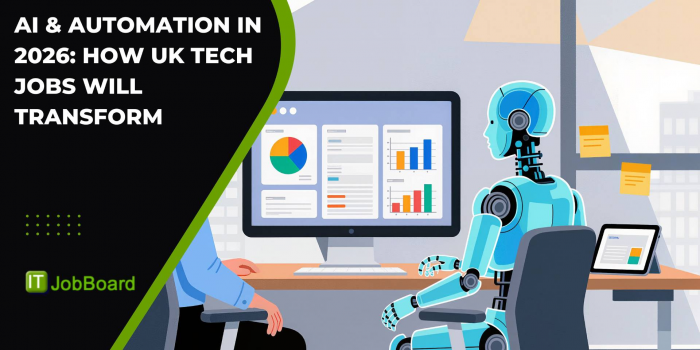Back

Best Programming Languages to Learn for UK Jobs in 2025 | Top Tech Skills & Career Guide
19/11/2025

Best Programming Languages to Learn for UK Jobs in 2025
The technology sector in the UK is expanding and developing rapidly, and employers within various sectors such as finance, healthcare, e-commerce, government, cybersecurity, and AI are looking for developers and developers with skills now more than ever. If you are a beginner or are looking to upskill, when trying to land a high-paying job in the UK, selecting the best programming language has a huge impact on your chances.
The following is a complete guide to choosing the best programming language for the UK jobs that emerge in 2025, taking into account employers' needs, pay, and growing technology trends.
1. Python
Best Suited For: Data science, AI/ML, automation, backend development
Average Pay in the UK: £45,000 – £100,000
Python remains the most in-demand language due to versatility and its stretches to a rich ecosystem. Python is used heavily in AI, data analytics, automation, fintech, scientific applications, and cybersecurity.
Why you should adapt to learning Python:
- Easy for beginners
- Essential for AI and machine learning
- Strong demand for most of UK's startups and big tech
- Python works for automation, backend APIs, and analytics
2. JavaScript and TypeScript
Best For: Web development, full-stack development, frontend frameworks
Salary: £40,000 – £90,000
JavaScript runs almost everything on the web when TypeScript is a version of JavaScript preferred for larger enterprise applications.
Why It’s Valuable
- Vital for React, Angular, Vue jobs
- Required for full-stack roles using Node.js
- Huge demand in UK digital agencies, SaaS products, and e-commerce companies
3. Java
Best For: Enterprise systems, banking, telecom, Android applications
Salary Range: £50,000 – £100,000
Java is often the language of choice at UK banks, financial services organizations, and government systems because of its scalability, security, and stability.
Why Learn Java?
- Sustainable career opportunity
- High-level demand in fintech and enterprise organizations
- Strong salary potential for experienced backend developers
4. C#
Best For: Game development, enterprise backend systems, Windows client apps
Salary Range: £45,000 – £90,000
C# drives many enterprise applications under the .NET framework, and it is used by many companies in the UK to deal with their internal systems, cloud services, and because it is the preferred language for game developers.
Benefits
- Perfect for Unity game development
- Ideal for a stable career in technology
- Growing demand for Azure related cloud environments
5. SQL
Best For: Data jobs, analytics, BI, and backend development
Salary Range: £40,000 – £85,000
SQL is not a traditional programming language, however it is the most critical skill for nearly every data role, and almost every organization you work for in the UK will be relying on some relational database.
Why Learn SQL
- Ground floor requisite for data analytics and reporting
- A requisite skill for backend and cloud engineers
- Works well with Python, Java, .NET
- Go - Golang
- Best For: Cloud systems, distributed apps, networking, DevOps
- Salary Range: £55,000 – £110,000+
- Go's popularity is growing in UK startups, fintech companies, and cloud-native environments.
- Why It's Becoming Popular
- Designed for high-performance systems
- Great for microservices and Kubernetes
- Strong salaries due to skill shortage
7. Rust
Best For: High-performance computing, security, blockchain
Salary Range: £60,000 – £120,000+
Rust is among the fastest-growing high-paying languages in the UK. Because of its focus on safety and speed, it's ideal for cybersecurity, blockchain, and system-level engineering.
Why Learn Rust?
- Very high salaries
- Popular in growing sectors: Web3, fin-tech, cryptography.
- Stable performance for system-level design
- PHP
Best For: Web development, CMS - WordPress, Drupal, etc., backend APIs.
Salary Range: £35,000 – £80,000
While older, PHP still powers a great deal of websites and e-commerce platforms in the UK, so it's a reliable skill for back-end developers.
Why It's Useful Most of UK's SMEs rely on PHP developers. Required for WordPress development Large job availability across sectors
Which Language Should You Learn First?
- If you are a beginner, start with,
- Python (easy + high demand)
- JavaScript (frontend & full-stack jobs)
- If you are looking to upskill to enhance your salary,
- Go or Rust for high-performance systems
- Java or C# for enterprise jobs
- Python for AI/ML/Data science
Conclusion
The demand for skilled developers across all industries in the UK is ever-increasing. By learning a programming language with respect to demand, salary, and your future career goals, it provides you with the opportunity to secure a high-paying, future-proof tech job in 2025 and beyond.
FAQs
1. Which programming language is most in demand in the UK in 2025?
Python and JavaScript continue to be the most sought-after languages due to their use in AI, data science, web development, and automation.
2. What programming language offers the highest salary in the UK?
Go and Rust developers earn some of the highest salaries, often ranging between £60,000–£120,000+ due to limited supply and high demand.
3. Which language should beginners learn first?
Python is the easiest for beginners and offers excellent job opportunities in data science, software development, and AI.
4. Which language is best for full-stack development careers?
JavaScript (with TypeScript) is essential for frontend and backend development using frameworks like React, Angular, and Node.js.
5. Are programming jobs in the UK beginner-friendly?
Yes. Many entry-level roles hire candidates with strong fundamentals in Python, JavaScript, or Java, even without a traditional degree.
6. Is SQL necessary for UK tech jobs?
Absolutely. SQL is required for data analytics, BI, backend development, and nearly all cloud-based applications.








































































































































































